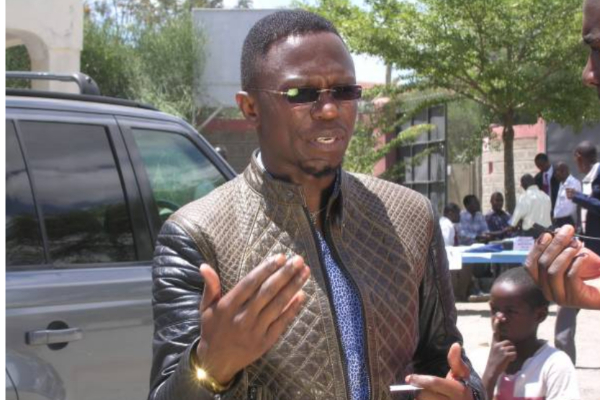New era for arts in varsities, with State as an actor

After a long wait, the Kenya Universities Performing Arts and Film Association (Kupaa) has finally been officially recognised by the government, with a promise of full funding and support to spur the arts.
Youth, Sports and Arts Cabinet Secretary, Ababu Namwamba, says only through universities can Kenya harness and support talented local actors and film producers. Formation of Kupaa is part of deliberate efforts to increase active involvement of university and college students in theatre and film. Hopefully, this will make the students independent while pursuing the performing arts, and separate them from the lower levels of education.
After years of deliberations and concerns that mixing university students with learners from lower levels during festivals, discouraged them from exploiting their full potential, lecturers, performance trainers and students decided to create Kupaa.
Hold own festivals
Establishment of Kupaa followed a review of the universities’ place in Kenya National Drama Festivals (KNDF), which traditionally was organised by the Ministry of Education, State Department of Basic Education. It entailed separation of Kupaa from KNDF, with universities to henceforth hold their own festivals. Special plans on this are already being made, independent of KNDF. So far, 35 public and private universities have joined the association.
While presiding over a closing ceremony of Kupaa at Jaramogi Oginga Odinga University of Science and Technology (JOOUST), Namwamba said that giving universities their independence in planing and participating in arts and theatre festivals will offer them a conducive environment to realise their artistic potential.
“Through such an initiative, you young students (in universities) are accorded opportunities to display your hidden talents and to share and exchange ideas that will inculcate national values among fellow students and the public,” he said.
Namwamba assured stakeholders in the performing arts of government support, saying the association would help promote local talent among the youth.
The Kenya Film Classification Board (KFCB), Nyanza regional manager, Edward Koech, said the board was committed to creating a facilitative, regulatory environment for the creative industry to thrive.
Separation of the two associations , according to the designers, was informed by concerns that the conduct of university students during arts festivals could negatively influence those in lower education levels. Also, there were variations in KNDF, a crashing of academic calendars and emphasis on research, publication and commercialisation of art in higher educational institutions, which has recently been a source of employment for young people.
Further, given that university students are mature, their productions often tackle themes that are at variance with the ideals of younger participants from lower education levels and their teachers.
The category under which universities and colleges fall in KNDF is ‘over 18 years’, which is beyond that of secondary schools.
“University students were largely “ill-behaved” and engaged in behaviour that did not support the strict discipline advocated in lower levels. For instance, there were concerns about the dressing and general grooming of university students,” says a source in the separation team.
Further, the reviewers of KNDF content argued that universities were not supposed to be part of the national drama festivals, owing to a clash in academic calendars that made synchronisation with the basic education system impossible.
“The national festivals would be held when some universities were in the middle of exams, while others were on long holidays, and yet others might have been closed due to strikes. Others still might have just started a new semester. With all this, the festival was never all inclusive”
According to the ministry, separation of universities from lower education level learners in KNDF eases congestion and enables universities to become role models for younger artistes. “The separation and participation are geared towards development of talents in performing arts. It will have a long and sustainable payback to students and Kenya,” Namwamba said.
Grow the economy
He added: “ This is an investment because the arts can help attract talents, spur innovation, and grow local economies.”
The executive secretary of Kenya Inter-Universites Music Festivals, Caleb Nyagwano, said the ongoing education reforms in Kenya emphasises on talent development, including creative arts and music.
“There is a need to strengthen the development of music at university level so as to prepare the ground for students who will be transiting from a reformed basic education sub-sector. This will not only enhance talents and skills in music, but also serve as incubators for graduates who will excel in the industry,” Nyagwano said.
Kupaa will be overseen by Kenya University Deans of Students Association. It will aim at promoting the performing arts and film genres among university students.











